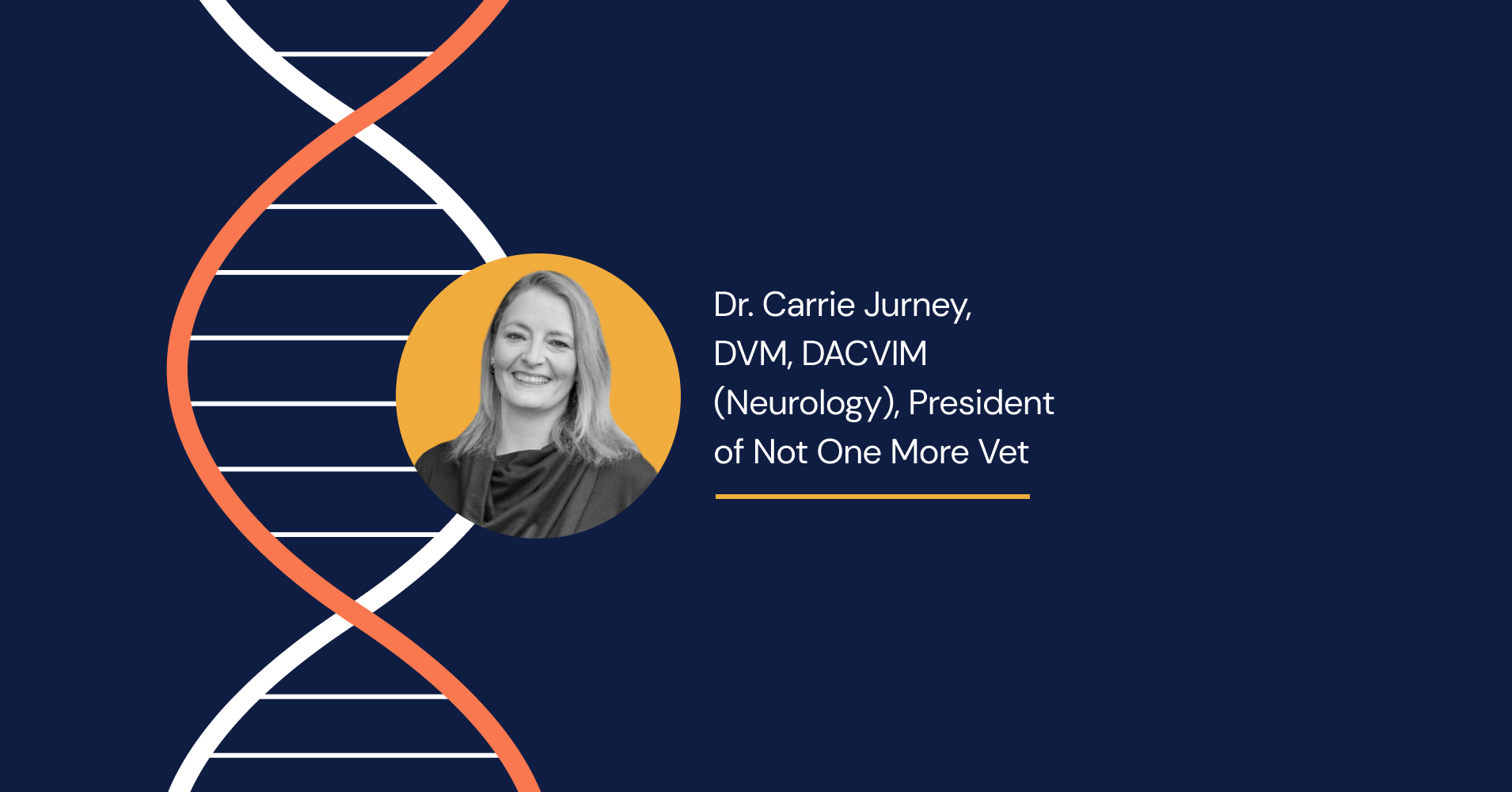Compounding Pharmaceuticals in the Age of COVID-19, Part 2
In our fifth webinar of this series, we welcome Joe Costa, COO of Wedgewood Pharmacy, to discuss the effects of the COVID-19 pandemic on the veterinary compounding pharmaceutical industry. Joe will share how Wedgewood has been able to deliver for veterinarians and their patients despite COVID-19 disruption.

Joe Costa, Chief Operating Officer of Wedgewood Pharmacy
Can you discuss compounding pharmacies in general and in particular, Wedgewood?
Compounding grew out of the need from doctors to provide medication for patients where an appropriate FDA drug treatment option did not exist.
Wedgewood Pharmacy was established 40 years ago and started compounding 10 years into their existence. Patients needed medication that weren’t available from FDA manufacturers.
- There are many reasons why veterinarians turn to compounding pharmacies. Some reasons include requiring a different drug strength, flavor of medication for compliance, or dosage needs.
- Compounding pharmacies are carefully regulated by State Boards of Pharmacy, similar to how medical boards function.
- In terms of quality assurance, we must meet rigorous United States Pharmacopeia (USP) standards for sterile/non-sterile drugs and standards for treating hazardous drugs
. Wedgewood complies with all these regulations. There are requirements for active pharmaceutical ingredients (API), These are true medical grade chemicals that comply with USP standards for ingredients.
Chemicals must come from FDA registered and approved repackagers. Everything comes with a certificate of analysis to ensure the quality of the ingredient. Wedgewood also performs identity tests and visually inspect the drugs.
Why are compounding pharmacies more important now than ever before?
In the face of the pandemic, there are new reasons. Even before the pandemic, more backorder situations exist in animal health, in comparison to human health.
Our business has grown to respond to these backorder situations. Wedgewood recorded 95 backorders in the last 10 years for large, prominent medications for animals to be maintained on. But they became unavailable to the veterinary market.
With COVID-19, larger backorder situations are expected. The AVMA put out an interview two weeks ago about the availability of medication, where 1 in 5 reported they would anticipate backorders.
Compounding pharmacies are more important now than ever because it can fulfill orders when backorder situations happen. We have seen preference given to human health prescribers over veterinary patients. We are preparing to respond to those shortages to fully support our veterinary patients during this time.
How is COVID-19 affecting your supply chain? How are you dealing with this?
Around 80% of chemicals come from China. With the slowdowns and shutdowns in China due to COVID-19, we are expecting another shortage within Q3. The chemicals that were supposed to be produced during the shutdown are not available.
At Wedgewood, this is being dealt with in many different areas:
- We have implemented a number of practices to ensure employee safety, which meet and exceed CDC guidelines. This is to protect our employees and the supply.
- We are focusing on personal protective equipment (PPE). We’ve gone through an effort of sourcing and conservation for PPE.
- We formed three task forces to acquire a 12-month supply of materials (API, PPE) and packaging..
Is COVID-19 affecting your staffing? How are you protecting employee health?
We are focused on ensuring employee protection and have moved many employees to work remotely. We follow lots of practices recommended by CDC and implemented additional precautions. There are currently zero cases in any of our facilities, and we are working hard to keep everyone safe.
There is a lot of information and misinformation about 503A and 503B pharmacies, can you discuss the difference? How does this or does this affect the quality control of compounded medications?
With the passage of the Drug and Security Act in 2013, 503A and 503B was directed to human health. It was federal legislation passed for sterile medication to be delivered to offices for office usage.
Subsequently, FDA was asked if animal health pharmacies needed to apply. We were told this was only applicable to human health. However, some in the veterinary space have been successful in acquiring 503B status, but they must additionally do human-health sterile drugs for hospital use with their services. In animal health, office usage was already allowed in most states for patient-specific prescriptions.
The advantage of 503B is the ability to dispense for office use everywhere. This is especially important in those 12 states where it is prohibited.
Wedgewood has a purchase agreement signed to obtain a 503B outsourcing facility, and we are working to have production from that facility by the end of the year.
We are confident in the quality of our compounded medication. These regulations do not relate to quality. Instead, it refers to the ability to dispense for office use in states which currently do not permit it.
How often does Wedgewood do QA/QC on the compounded medications? Is this done on each batch? Has this changed due to COVID-19?
Quality at Wedgewood Pharmacy comes from people, processes, and equipment in facilities. This is led by independent professionals, supported by a team of pharmacists at every step of the process.
In addition, they are supported by a team of dedicated technical training professionals for certifying our clinical technicians. There are quality systems in place, which include support, document control, change control, validation, and calibration, preventative maintenance. In some cases, we are supported by outside experts. Our facilities are facilitated and consistently monitored by a computerized system for us to react to any possible changes.
Do you utilize independent QA/QC, or is it run in-house? On API and drugs -- what do you do now that’s different due to COVID-19?
Our QA/QC protocol is a combination of in-house and external teams, along with processes that contribute to our QA/QC process. Outside testing is done on finished goods. Quality management is done by in-house experts.
The main difference with COVID-19 is the calibration and resource allocation of rooms.
What’s the craziest thing you’ve had to do to ensure the availability of your ingredients and other supplies during the COVID-19 pandemic?? To name a few:
- We ran out of space and had to quickly source/find additional warehouse space to store materials (API, PPE, and packaging), We found a 20k square foot warehouse.
- We had to be creative in sourcing PPE in this environment to ensure protection of our employees.
- We used to have N95 masks. With the shortage, we have transitioned to reusable path masks that require fit testing. There’s been a huge effort in obtaining and fitting all employees to continue compounding medication.
Are there any changes that will stick past this pandemic? The question becomes how to define post-pandemic. Some practices are expected to continue to a degree, such as social distancing and wearing masks. We will figure this out as we go along. From a QA/QC standpoint, we already assure the quality of materials with a number of checks already in place. The only change with COVID-19 is to continue to ensure the safety and health of our employees.
Can you discuss the differences between API, chemical grade, medical grade, as it relates to medications?
Not all vendors use USP grade chemicals in their medication. Wedgewood feels like it is important to qualify our vendors. We have vendor quality agreements with all of the FDA providers.
We monitor the provider’s regulatory activity. For example, if they’ve had FDA inspections or any kind of observations as a result of an inspection. We also perform in-person audits with an internal quality team or internal experts, and we go there to do quality audits with the vendors. It’s very important to start with the appropriate grade ingredient to ensure the highest standards of our products are where they're supposed to be.
How is this affecting your service? Specifically, are there any impacts on timelines?
We have a supply of APIs to prevent an impact on our timeline. We are always looking for ways to keep costs low for our pet parents. There have not been any delays with shipping times or deliveries, and our call center service levels have been a lot better than they have been previously. In terms of pricing, the cost of some chemicals will go up. Higher demands with lower supply may drive costs up.
What would you like the veterinary community to know about compounding pharmacies?
Compounding from bulk ingredients is legal. There is a lot of misinformation in the marketplace because the FDA doesn't like how compounding is done from bulk ingredients in animal health. We believe very strongly that is permitted, and the law permits it.
It is a lot more rigorous than people would think, in terms of environmental monitoring, level of training, and certification of technicians and pharmacists. You will be surprised by the rigor of the Quality Assurance. (We offer tours for veterinarians at our facility if anybody is in the Philadelphia area and would like to visit us!)
Compounding is at-risk. The FDA put out guidance in November 2019 where they’re attempting to have us start with finished goods instead of bulk APIs from FDA registered vendors. This will severely limit our ability to help patients if we have to start with finished goods.
- First, if there's a manufacturer backorder, there are no finished goods to use for compounding.
- Secondly, the cost is going to be substantial, especially on some of these chemotherapeutics agents.
We’re working to get a letter signed by Congress, and we are asking veterinarians to write to congress members.
How can we help in this process to ensure high quality medications and making them affordable to our pet parents?
The most important thing to do is to engage.
- Survey Participation: This provides data to show it would cause unnecessary suffering and unnecessary death in patients.
- Comment to FDA: Tell your story, why your clinic will be negatively impacted, and how your patients will be affected.
- Talk to Your Local Legislator: Let them know how your patients will be affected.
Wedgewood Pharmacy serves over half a million pet parents per year. Please tell Congress why compounding pharmacies are important to you and your animal. More information can be found at mymedsmatter.com.
If you would like to get our webinar invites, please send us a note using our veterinarian contact us form.


